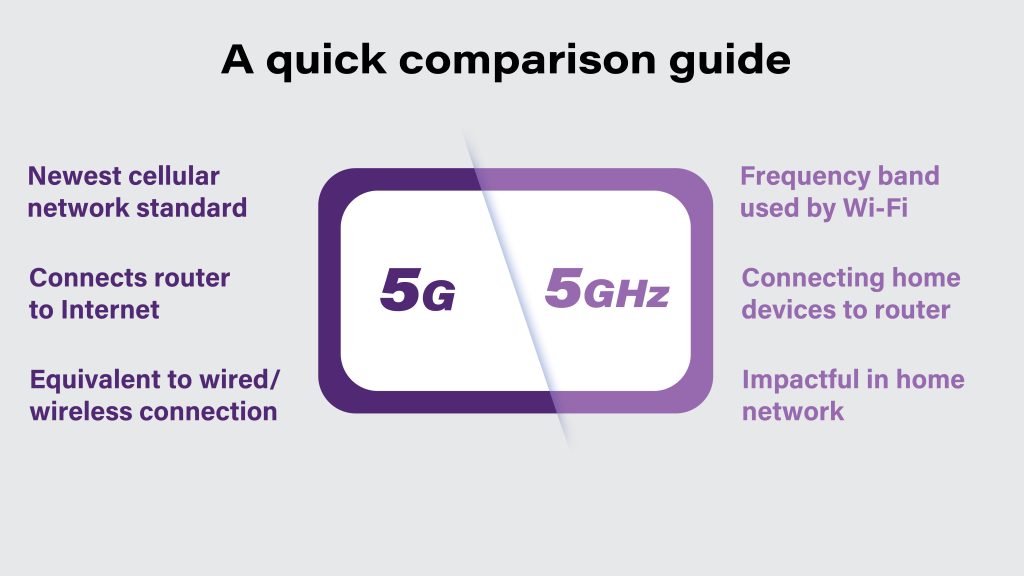Understanding 5GHz WiFi: Is It the Same as 5G?
telcomatraining.com – With the rise of high-speed internet, the terms “5GHz WiFi” and “5G” are often thrown around. While they sound similar, they refer to two completely different technologies. This confusion has led many people to wonder: Is 5GHz WiFi the same as 5G? The short answer is no—but understanding the difference is crucial, especially if you’re trying to optimize your internet experience.
What is 5GHz WiFi?
5GHz WiFi refers to a frequency band used in WiFi networks. Most modern routers offer two frequency bands: 2.4GHz and 5GHz. These bands are part of what’s known as dual-band routers.
- 2.4GHz offers a longer range but slower speeds.
- 5GHz offers faster speeds but a shorter range.
The 5GHz band can handle more data at a faster rate, making it ideal for activities like HD streaming, online gaming, and video conferencing. However, since it has a shorter range, it may not penetrate walls and obstacles as effectively as the 2.4GHz band.
What is 5G?
5G stands for fifth-generation mobile network technology, the latest upgrade in the world of cellular networks. Unlike WiFi, which connects your devices to the internet via a router and broadband connection, 5G is used by mobile carriers to provide wireless internet access directly to smartphones and other mobile devices.
5G networks offer several advantages over previous generations:
- Faster download and upload speeds
- Lower latency (better responsiveness)
- Support for more connected devices
In essence, 5G allows users to enjoy high-speed internet without relying on a traditional WiFi router.
Key Differences Between 5GHz WiFi and 5G
Although they sound similar, 5GHz WiFi and 5G are fundamentally different:
| Feature | 5GHz WiFi | 5G (Mobile Network) |
|---|---|---|
| Technology Type | Wireless LAN (WiFi) | Cellular Network |
| Frequency | 5 gigahertz | Various frequencies (low to mmWave) |
| Range | Shorter (limited to home/office) | Wide area coverage (citywide/nationwide) |
| Speed Potential | Fast, especially for local use | Extremely fast, depending on signal |
| Use Case | Home and business WiFi networks | Mobile internet on-the-go |
Why the Confusion?
The main source of confusion stems from the use of the number “5.” While 5GHz refers to the radio frequency of WiFi, 5G refers to the fifth generation of mobile networks. The overlap in naming is purely coincidental—they serve different purposes and are based on distinct technologies.
Which One Should You Use?
This depends on your needs:
- For home use: If you’re connected to a WiFi router, using the 5GHz band can give you better speeds, especially if you’re close to the router.
- For mobile use: If you’re using a smartphone or a mobile hotspot, 5G offers better speeds and lower latency than older networks like 4G.
Many modern devices can switch seamlessly between 5GHz WiFi and 5G networks depending on what’s available, ensuring you get the best possible performance.
Conclusion
In summary, 5GHz WiFi and 5G are not the same. 5GHz is a frequency band used by WiFi routers to deliver fast, local internet connections, while 5G is the fifth generation of cellular network technology designed for high-speed mobile internet.
Understanding the distinction helps you make smarter choices when setting up your internet connection or shopping for new tech. Whether you’re streaming movies at home or attending video calls on the go, knowing when to use 5GHz WiFi or 5G can enhance your online experience.







